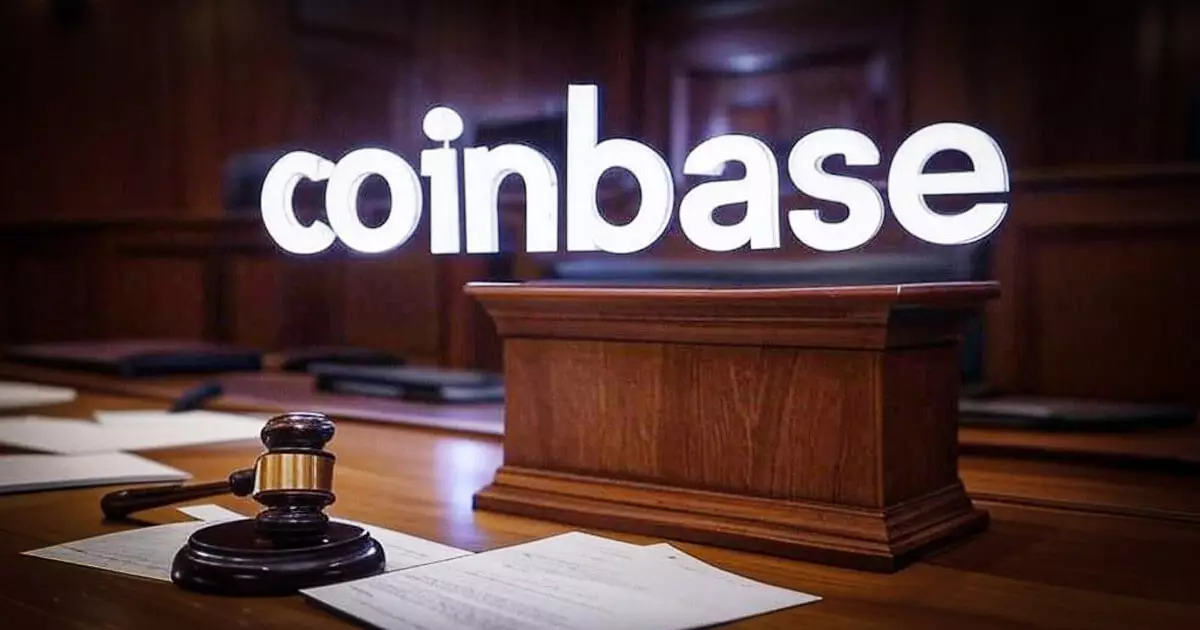The ongoing tensions between cryptocurrency exchanges and regulatory bodies have reached a new chapter following the recent ruling by the US Court of Appeals for the Third Circuit regarding Coinbase and the Securities and Exchange Commission (SEC). This decision has highlighted the intricate challenges faced by both regulators and the nascent cryptocurrency industry as they navigate the evolving landscape of digital assets.
In a notable ruling delivered on January 13, the Third Circuit issued a partial victory for Coinbase by declaring that the SEC’s reasoning behind its rejection of Coinbase’s petition for clearer cryptocurrency regulations was “arbitrary and capricious.” This term, rooted in the Administrative Procedure Act (APA), indicates that federal agencies must provide a clear and reasoned explanation for their actions—criteria that the court found lacking in this case. Judge Ambro, leading the panel, expressed concern regarding the SEC’s failure to adequately detail its decision-making process, particularly its blanket assertion that existing regulations adequately cover the unique nature of digital assets.
The court emphasized that while the SEC has significant discretion in its regulatory framework, it cannot operate without accountability. The opinion critiques the agency’s tendency to pursue enforcement actions against crypto firms without offering definitive rules outlining compliance pathways, suggesting that this lack of guidance raises substantial due process issues. The ruling not only challenges the SEC’s approach but also emphasizes the need for clearer communication and transparency surrounding regulatory expectations for digital asset companies.
Coinbase’s initial efforts to petition the SEC for updated rules reflect the broader frustrations within the cryptocurrency industry regarding the regulatory landscape. In its 2022 petition, Coinbase underscored the fundamental incompatibility between existing securities laws and the practical realities of cryptocurrency operations, citing issues like decentralized ownership and the diverse functionalities of many digital assets that exceed mere investment purposes. By highlighting these challenges, Coinbase sought to initiate a dialogue regarding the necessity for a regulatory framework that recognizes the unique attributes of blockchain technology and digital currencies.
The SEC’s hasty dismissal of Coinbase’s petition, characterized by minimal justification, has been criticized for perpetuating uncertainty within the crypto market. The agency’s stance of maintaining current regulations while focusing on enforcement actions does not align with the rapidly evolving nature of the cryptocurrency ecosystem, leading to calls for more discernible guidance that is specifically tailored to the industry.
Though the Third Circuit refrained from compelling the SEC to undertake a formal rulemaking process, the implications of its ruling resonate throughout the wider legal landscape for cryptocurrencies. The court’s decision marks a pivotal moment that could encourage other crypto firms to seek legal recourse against the SEC in similar matters, fostering an environment where additional challenges to the regulator’s authority may emerge. By addressing the SEC’s lack of clarity and its potential constitutional implications, this ruling sets an essential precedent and signals a possible turning point in how regulatory bodies may need to approach the oversight of digital currencies.
Reactions within the cryptocurrency community have largely been positive, with figures such as Paul Grewal, Coinbase’s chief legal officer, commending the court’s careful review of the circumstances. Additionally, Jake Chervinsky, chief legal officer of Variant Fund, has referred to the ruling as a significant win for Coinbase, which may have implications for future litigation involving crypto and regulatory bodies.
As the cryptocurrency industry continues to expand and evolve, the necessity for a regulatory framework that accommodates the unique characteristics of digital assets becomes increasingly pressing. This ruling from the Third Circuit sheds light on the pivotal need for the SEC to provide clearer guidance that is essential for due process and fostering innovation. Stakeholders in the crypto space—from exchanges to developers—are left navigating a precarious landscape defined by ambiguity and restrictive regulatory practices.
As conversations continue regarding how to balance regulation with innovation, the path forward remains uncertain. The ruling not only highlights the inadequacies of the current regulatory environment but also underscores the need for collaborative dialogue between regulators and the cryptocurrency community to shape a more comprehensive and supportive framework.



















Leave a Reply